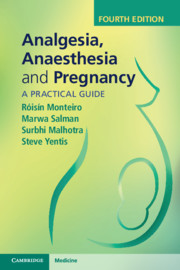
There are seven Clinical Fundamentals (CFs), which define the fundamental specialty knowledge and skills of anaesthetists applicable across all areas of practice. They are: general anaesthesia and sedation; airway management; regional and local anaesthesia; perioperative medicine; pain medicine; resuscitation, trauma and crisis management; and safety and quality in anaesthetic practice.
This guide contains resources to aid in developing knowledge and skills in these areas through RGA training.
How to access e-resources
 Use your ANZCA college ID (or staff username) and password to access library e-resources.
Use your ANZCA college ID (or staff username) and password to access library e-resources.
 Having trouble logging into e-resources? Try emptying your browser cache, closing and reopening your browser, and trying again.
Having trouble logging into e-resources? Try emptying your browser cache, closing and reopening your browser, and trying again.
 Forgotten your ANZCA password? Try resetting your password using the "Forgot Password?" link and/or messaging the "Technical support" via the college contact form
Forgotten your ANZCA password? Try resetting your password using the "Forgot Password?" link and/or messaging the "Technical support" via the college contact form
 Want to learn more about SSO/MFA at ANZCA? See Protecting your data for more information, including instructions on how to set up MFA/SSO.
Want to learn more about SSO/MFA at ANZCA? See Protecting your data for more information, including instructions on how to set up MFA/SSO.
 Experiencing difficulties, or need help? Contact the Library
Experiencing difficulties, or need help? Contact the Library
Recommended resources are listed below.
 Additional general anaesthesia resources can be accessed via the Anaesthesia essentials guide.
Additional general anaesthesia resources can be accessed via the Anaesthesia essentials guide.
 Additional resources on pharmacology can be found on the Primary Exam Recommended Reading List.
Additional resources on pharmacology can be found on the Primary Exam Recommended Reading List.
 Additional drug information resources can be found on the Drug Information guide.
Additional drug information resources can be found on the Drug Information guide.
Key texts
 The First Year: What You Should Know After a Year of Anaesthesia Training (Revised Edition)
by
Recommended
This book is not an exam primer nor is it a comprehensive textbook of anaesthesia. This is the book you give to the trainee specialist who is about to embark on their anaesthesia training. It contains the information they need to formulate and develop a safe practice of anaesthesia. This book lucidly describes and justifies the core knowledge, behaviours and practical skills that a junior trainee would be expected to possess after a year of anaesthesia. Written specifically for Australasian specialist anaesthetic trainees and those doing the Rural Generalist Anaesthesia (RGA) training course, this book fills the gaping hole in the existing anaesthetic literature. The curriculum for the Introductory Training period and the RGA is comprehensively addressed in this book.
The First Year: What You Should Know After a Year of Anaesthesia Training (Revised Edition)
by
Recommended
This book is not an exam primer nor is it a comprehensive textbook of anaesthesia. This is the book you give to the trainee specialist who is about to embark on their anaesthesia training. It contains the information they need to formulate and develop a safe practice of anaesthesia. This book lucidly describes and justifies the core knowledge, behaviours and practical skills that a junior trainee would be expected to possess after a year of anaesthesia. Written specifically for Australasian specialist anaesthetic trainees and those doing the Rural Generalist Anaesthesia (RGA) training course, this book fills the gaping hole in the existing anaesthetic literature. The curriculum for the Introductory Training period and the RGA is comprehensively addressed in this book.
 Miller's Anesthesia, 10e
by
***Highly Recommended*** Offering up-to-date coverage of everything from historical and international perspectives to basic science and today’s clinical practice, Miller's Anesthesia 10e, remains the #1 reference and trusted learning resource for practitioners and trainees in this complex field. Dr. Michael Gropper leads a team of expert editors and contributing authors who provide current information on the technical, scientific, and clinical issues you face each day—whether you’re managing a challenging patient care situation, preparing for the boards, or studying for recertification.
Miller's Anesthesia, 10e
by
***Highly Recommended*** Offering up-to-date coverage of everything from historical and international perspectives to basic science and today’s clinical practice, Miller's Anesthesia 10e, remains the #1 reference and trusted learning resource for practitioners and trainees in this complex field. Dr. Michael Gropper leads a team of expert editors and contributing authors who provide current information on the technical, scientific, and clinical issues you face each day—whether you’re managing a challenging patient care situation, preparing for the boards, or studying for recertification.
Recommended texts
 Analgesia, Anaesthesia and Pregnancy: A Practical Guide, 4e
by
Now in its fourth edition, Analgesia, Anaesthesia and Pregnancy is a concise guide to obstetric anaesthesia and analgesia. This essential text reviews every topic and clinical challenge faced during delivery and focuses on pre-empting problems and maximising quality of care. It also covers acute emergencies related to pregnancy. This new edition features eleven new chapters that cover the significant updates in the field over the last few years. Presented in a clearly structured format, this practical guide will be an invaluable source of key information for any anaesthetist encountering obstetric patients, whether they are a practised consultant or still in training.
Analgesia, Anaesthesia and Pregnancy: A Practical Guide, 4e
by
Now in its fourth edition, Analgesia, Anaesthesia and Pregnancy is a concise guide to obstetric anaesthesia and analgesia. This essential text reviews every topic and clinical challenge faced during delivery and focuses on pre-empting problems and maximising quality of care. It also covers acute emergencies related to pregnancy. This new edition features eleven new chapters that cover the significant updates in the field over the last few years. Presented in a clearly structured format, this practical guide will be an invaluable source of key information for any anaesthetist encountering obstetric patients, whether they are a practised consultant or still in training.
 Australasian Anaesthesia 2025
by
Australasian Anaesthesia 2025
by
 Stoelting's Pharmacology and Physiology in Anesthetic Practice, 6e
by
Stoelting's Pharmacology and Physiology in Anesthetic Practice, 6e
by
Recommended professional documents are listed below. The full suite of ANZCA professional documents can be accessed via the college page.



Quick links
About ANZCA
Copyright © Australian and New Zealand College of Anaesthetists.